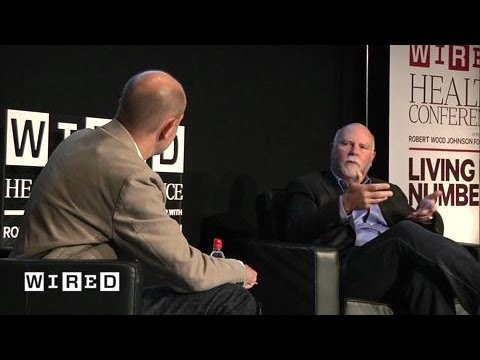Exploring Self-Tracking and Cognitive Function: A Look into Tim Ferriss’ Latest Findings
Summary
In this article, we delve into Tim Ferriss’ recent quest for fatness and his findings on self-tracking. Ferriss discusses the concept of minimal effective dose and its application to avoid overwhelming users with too many choices and actions. He predicts the rise of home testing kits for blood glucose levels and the importance of considering how data on subjective things like mood will be acted upon. Ferriss also talks about his funding of a study at UCS to improve cognitive function using devices like the Kinect and iPad, and his belief in the interconnection of mind and body. Lastly, he touches on his success in the self-tracking movement and the potential for change in the next 12 months.
Table of Contents
- The Quest for Fatness and Self-Tracking
- Minimal Effective Dose in Self-Tracking
- Home Testing Kits and Measuring Subjective Things
- Improving Cognitive Function with Technology
- Fertility Metrics as an Insurance Policy
- Success in Self-Tracking and Movement Formation
- Potential for Change in the Next 12 Months
The Quest for Fatness and Self-Tracking
Ferriss begins by discussing his recent quest for fatness, where he consumed 15,000 calories in 20 minutes and measured his excretion to identify calories in versus calories out. This experiment led him to the realization that self-tracking can be a powerful tool for understanding one’s body and making informed decisions about health and wellness.
Minimal Effective Dose in Self-Tracking
Ferriss then discusses the concept of minimal effective dose, which he believes can be applied to self-tracking to avoid overwhelming users with too many choices and actions. He suggests that users should focus on tracking only the most important metrics that will have the greatest impact on their health and well-being.
Home Testing Kits and Measuring Subjective Things
Ferriss predicts that home testing kits for blood glucose levels will become more prevalent, allowing users to easily track this important metric. He also emphasizes the importance of considering how data on subjective things like mood will be acted upon, as this can greatly impact the effectiveness of self-tracking.
Improving Cognitive Function with Technology
Ferriss discusses his funding of a study at UCS to improve cognitive function using devices like the Kinect and iPad. He believes that the development of software will determine the success of mental performance and is optimistic about the potential for improving cognitive function.
Fertility Metrics as an Insurance Policy
Ferriss suggests that fertility metrics should be measured as an insurance policy, but he is not interested in being an insurance policy himself. He also mentions his test drive app for tracking purposes related to his book, “The 4-Hour Body,” and his collaboration with the Lyft guy on an exercise app.
Success in Self-Tracking and Movement Formation
Ferriss talks about the success of his books and the movement that has formed around them. He attributes this success to addressing common objections and sticking points, encouraging self-tracking, and normalizing the behavior through the adoption of many people.
Potential for Change in the Next 12 Months
Ferriss discusses the potential for a lot of change in the next 12 months, particularly in the realm of self-tracking and the development of new technologies to support it. He also answers a question about evaluating breath gas analysis in relation to exercise and training regimens, mentioning his past experiences with gas exchange testing and VO2 max testing. However, he notes that it is difficult to do regularly without access to a dedicated facility.







